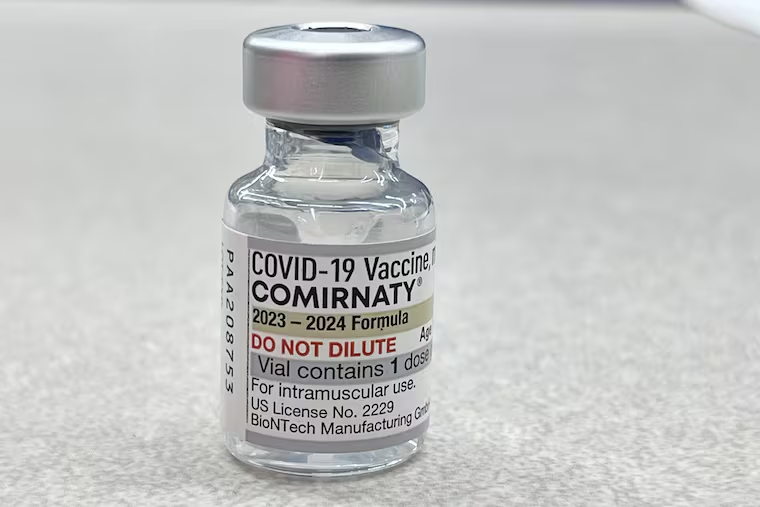COVID, RSV and flu could all be circulating at your Thanksgiving table. Here’s how to stay safe
Before you get together with family for the holiday, officials urge vaccinations for COVID, the flu and RSV.

Philadelphia health officials are urging people gathering for Thanksgiving to take safety precautions against the respiratory viruses that proliferate when people spend more time indoors.
While this year’s “sick season” may be less severe in Philadelphia than in previous years, it’s still important for people to test for COVID, especially those planning to have dinner with people more vulnerable to the virus. Health officials also encourage people to get vaccinated.
Shara Epstein, the medical director of the division of disease control at the city health department, said she expects a “more typical flu and RSV season than we’ve seen in the past.” COVID cases will likely rise again, “but to much more manageable levels,” she said.
In Pennsylvania, cases of respiratory syncytial virus, or RSV, and the flu have been increasing in recent weeks, though not near the levels reported during last year’s “tripledemic,” when a large spike in respiratory diseases, including COVID, flooded emergency rooms.
As of last week, COVID hospitalizations statewide had also seen a slight uptick, but have been mostly stable since cases began to rise in late summer. Those numbers, too, are well below the increase in cases seen during the tripledemic and other large COVID waves in late 2020 and early 2022.
In late October, the Centers for Disease Control and Prevention predicted that the winter sick season could see a “moderate COVID-19 wave,” with about as many hospitalizations at the peak of the season as the agency saw last year. Similarly, flu hospitalizations should be on par with recent years, though vaccine uptake will affect how many people need advanced care.
RSV infections are in line with “normal seasonal patterns” prior to COVID, the CDC said.
“During the first couple years of COVID, we did so much that affected the transmissions of these viruses — distancing, staying home, masking pretty much everywhere. We didn’t see RSV and flu, really, in the first year,” Epstein said. “Then RSV came back last year and we saw a huge wave — there were a lot of kids who hadn’t gotten it in previous years. But we’re starting to see an evening out of all of these viruses.”
Tips for avoiding seasonal illness
Local and national health officials have urged travelers to get vaccinated for respiratory diseases before they attend a Thanksgiving event. This is the first year that vaccines are available for flu, RSV, and COVID, the CDC wrote in a press release.
The CDC recommends that everyone older than 6 months should get flu and COVID vaccines. Supply chain issues and insurance snafus with the latest COVID-19 vaccines, which are effective against the most common variants circulating, have been resolved, CDC director Mandy Cohen said during a visit to Philadelphia last month.
In Philadelphia, Epstein said that health officials haven’t seen “huge uptake” of the latest COVID-19 vaccine. But, she stressed, it’s important that as many people as possible get both COVID and flu vaccines.
“There’s been some vaccine fatigue — people have gotten so many in the last few years,” she said.
People over 60 should talk to their doctors about getting an RSV vaccine. Pregnant parents should get an RSV vaccine between their 32nd and 36th weeks of pregnancy, and infants under eight months should get a preventive RSV antibody treatment.
Epstein said that supply issues have made the antibody treatments for infants harder to find this season, but that pregnant people and people over 60 should have less trouble accessing a vaccine.
In Philadelphia, the health department is also recommending residents test for COVID-19 before going to Thanksgiving dinner. Residents can pick up free COVID tests at four resource hubs around the city. The hubs’ locations and hours are listed on the health department’s website.
And, health officials say, if you don’t feel well, stay at home to avoid infecting anyone else at your Thanksgiving table.